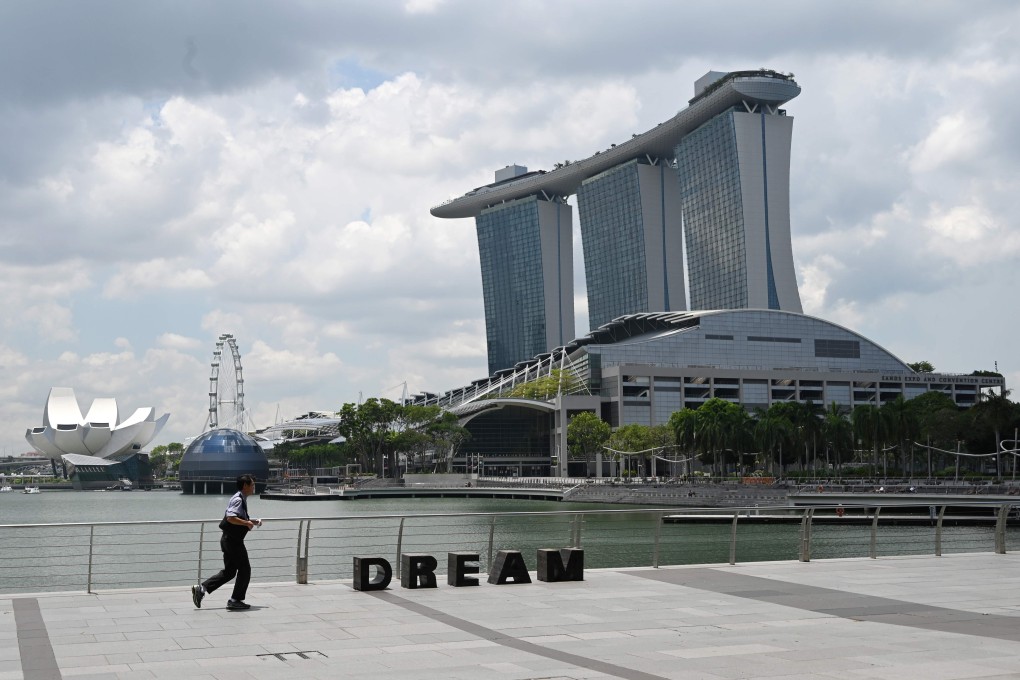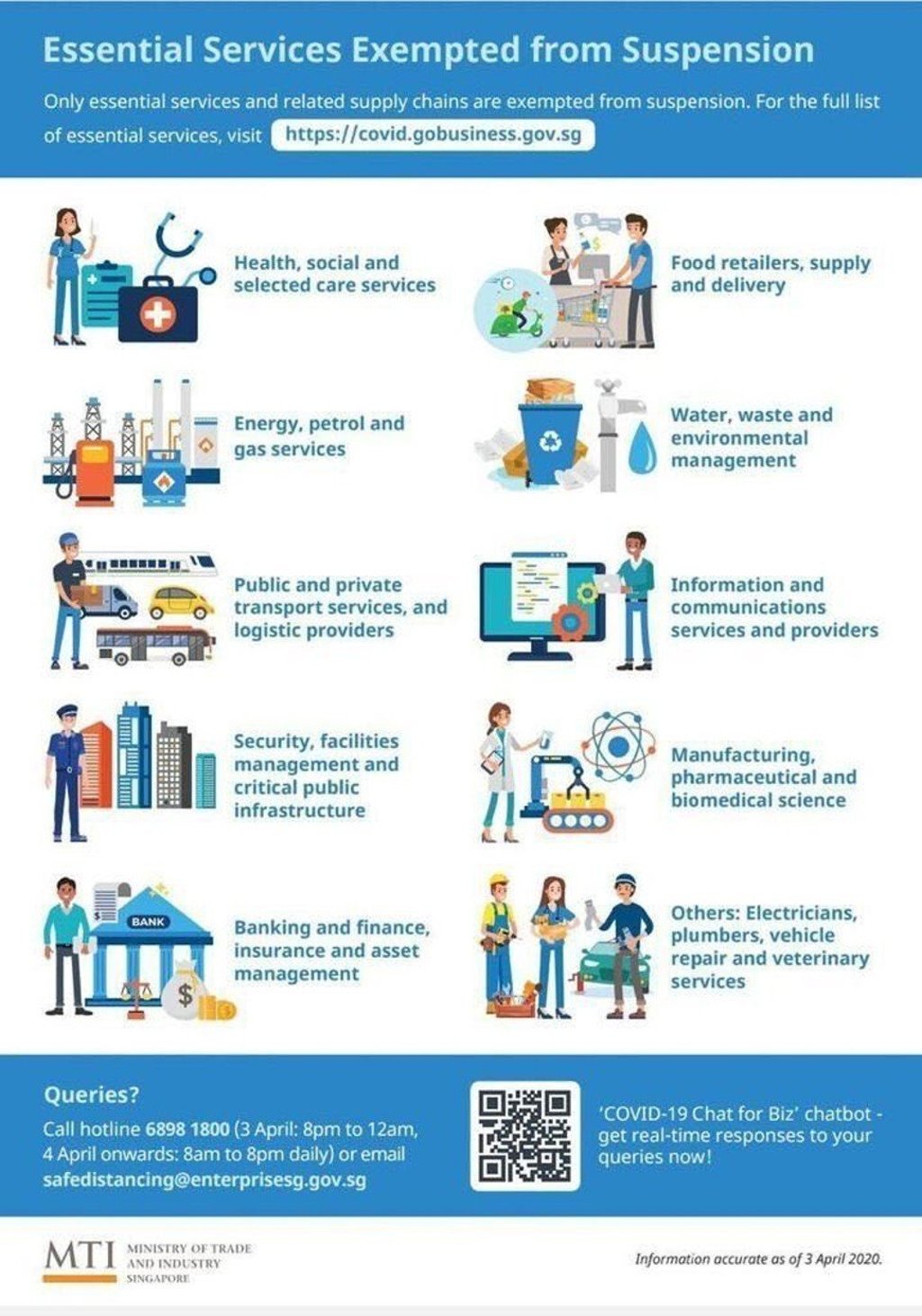Advertisement
Singapore to close schools, most workplaces from next week as ‘circuit breaker’ to stop virus
- The island nation has put in place its strictest measures yet to battle the pandemic, as its confirmed cases increase to more than 1,100
- People will also no longer be discouraged from wearing face masks, a reversal of earlier advice from the government
Reading Time:3 minutes
Why you can trust SCMP

Singapore will close schools from April 8 and most workplaces from April 7, to be opened again on May 5, its strictest measures yet to battle the Covid-19 pandemic that has led to more than 1,100 confirmed cases in the city state.
Essential services such as markets and supermarkets, clinics, hospitals, utilities, transport and banking services will remain open. While food establishments will remain open, diners can no longer eat at restaurants and will have to bring their food home.
All amusement parks, museums and casinos will also be closed, along with sports and recreation facilities such as public swimming pools, country clubs, gyms and fitness studios. All recreational facilities in hotels will also be closed.
Advertisement
Prime Minister Lee Hsien Loong on Friday said instead of tightening measures incrementally over the next few weeks, Singapore should “make a decisive move now, to pre-empt escalating infections”.
“Looking at the trend, I am worried that unless we take further steps, things will gradually get worse, or another big cluster may push things over the edge,” Lee said, describing the new measures as a “circuit breaker”.
Advertisement
Advertisement
Select Voice
Choose your listening speed
Get through articles 2x faster
1.25x
250 WPM
Slow
Average
Fast
1.25x
